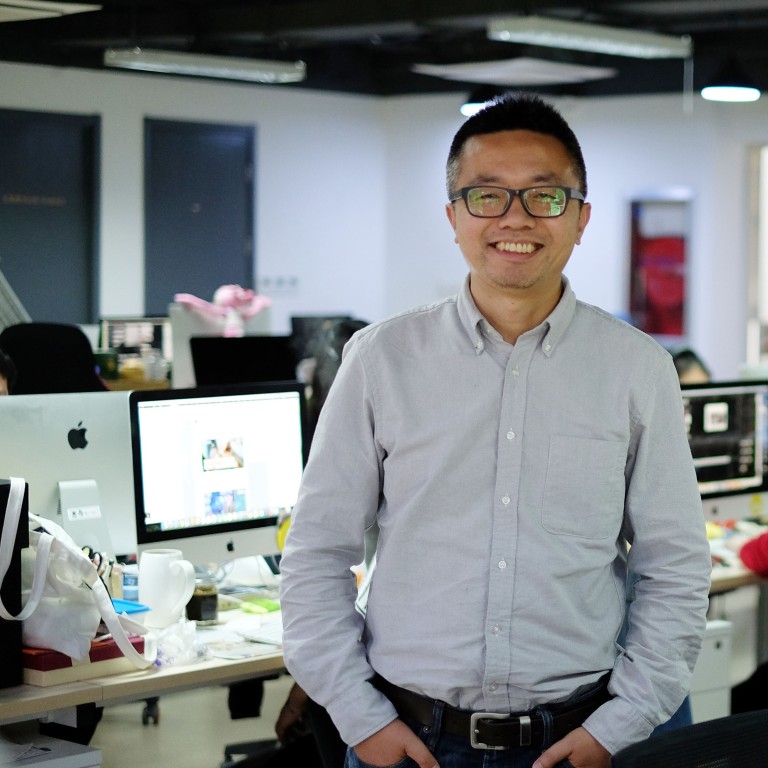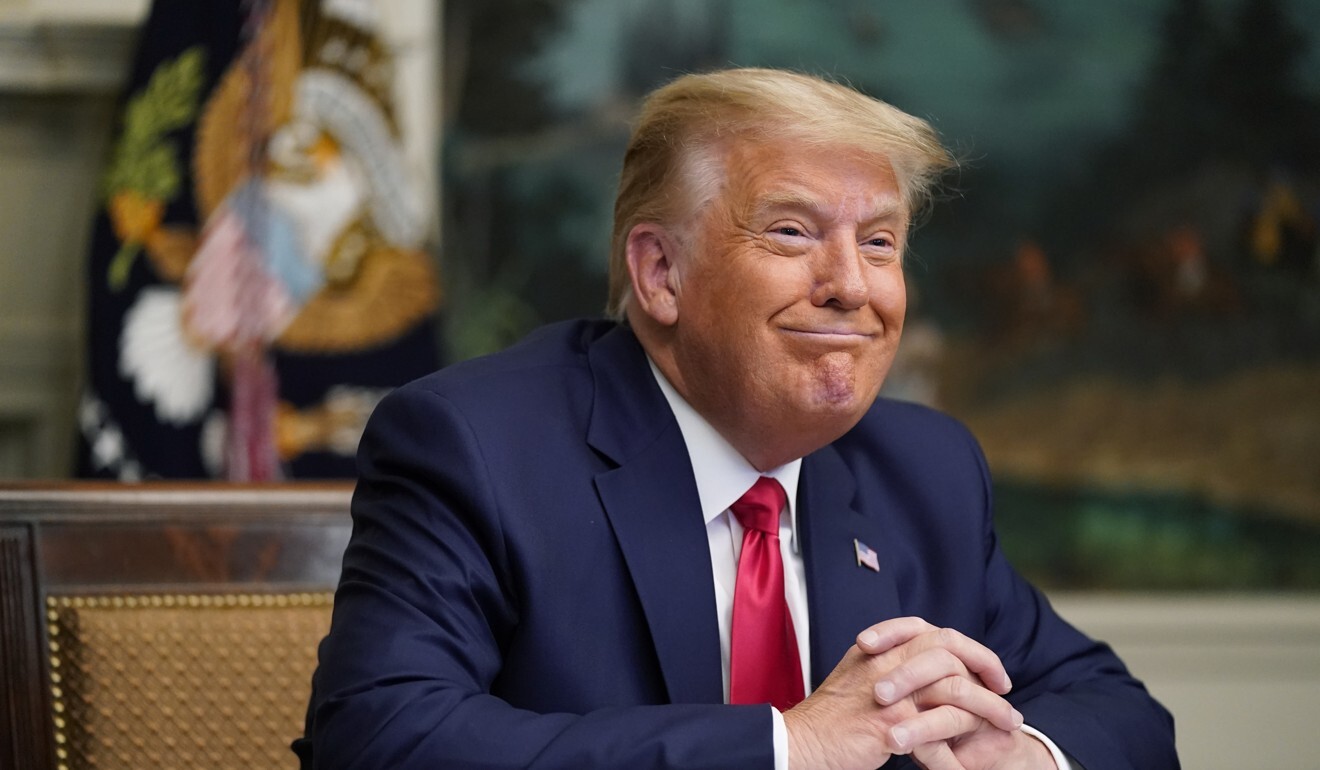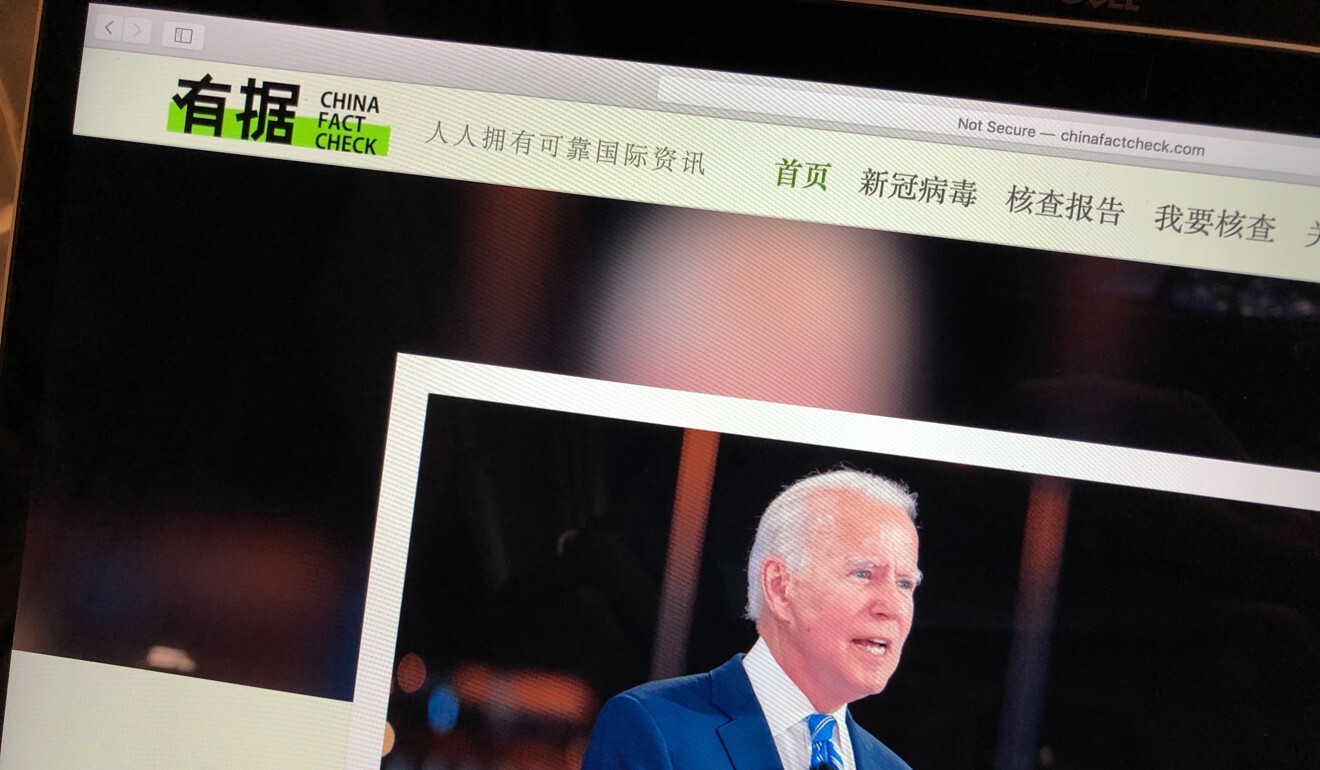
Exclusive | Meet the man fighting the Chinese internet’s fake news epidemic
- The founder of China Fact Check says misinformation about foreign affairs is rife on Chinese social media as many people cannot access international media
- Project found most of the fake stories are pro-Trump, and include false claims about voter fraud, George Soros and Black Lives Matter
So much fake news from other countries is spilling over onto Chinese social media that a Shanghai journalist has started a fact-checking project for Chinese readers, many of whom have limited English skills and little direct access to mainstream media.
“[Donald] Trump has not only influenced the US in the past four years, but he has also heavily influenced ordinary Chinese, including some well-educated ones, and undermined their trust in the mainstream media,” said Wei Xing, a Shanghai-based journalist and founder of Chinafactcheck.com.
Like many journalists in China, Wei is deeply troubled by widespread posts on Chinese social media, many of which look like reposts of news coverage in English, often dubbed with descriptions in Chinese that are exaggerated and inaccurate.
Chinese internet users who have limited English skills and no direct access to mainstream international media outlets – most of which are blocked by censors and need a VPN to access – are the main consumers of such posts.
Face-swapping deepfake app annoys China’s internet watchdog
They even include some well-educated Chinese friends and acquaintances of Wei, including university professors.
“We journalists have been after exclusives and in-depth analysis, but it turned out those efforts are quite meaningless as most people are mostly just reading those [fake news stories],” said Wei, one of the co-founders of Sixth Tone. “It’s pathetic and I want to do something about it.”
In recent months, Wei, 40, and the China Fact Check team have debunked claims about voting fraud in the US elections propagated by Trump and his supporters, stories about the incoming Biden administration’s policies on China as well as conspiracy theories about the Black Lives Matter movement and the Covid-19 pandemic.
While fact-checking projects based in the US and Europe have been around for years, with well-established models and a specific focus, Wei’s project breaks new ground.

Chinese media sometimes runs sporadic fact-checking projects on non-political issues, but efforts focused on international news stories were rare until Wei started the project.
Wei found most fake news stories in China were pro-Trump, some lifted directly from well-known conspiracy theory websites. In other cases, stories taken from satirical websites were being reported as fact.
Academic studies back up Wei’s point. A study published in 2018 by Columbia University’s graduate school of journalism found discussions about US politics on the hugely popular app WeChat were “asymmetrically polarised, with the right leading in volume, reach, and skewed issue agenda”.
Last week, Wei ran a fact-check after false rumours that George Soros, a Trump critic and frequent target of conspiracy theories, had been arrested for election fraud went viral on Weibo, China’s equivalent of Twitter.
‘DiaperDon’: Trump mocked for giving Thanksgiving speech from tiny desk
The story was taken from Conservative Beaver, a website that describes itself as for “news stories of interests to proud Canadians” and also runs op-eds from Russian state outlet RT, in a post that now appears to have been deleted.
He also found that certain Chinese bloggers have made up stories, in addition to reposting fake ones from other sources.
“For people who manufacture or spread false information, it would be much more costly if it was about China’s domestic issues,” said Wei.
“But if they make up fake news about the US, there’s little consequence and they receive a boost in traffic.”
Under Chinese law people can be jailed for up to three years if found guilty of being the author of false posts deemed to be libellous.
In practice, punishment for false information only concerns domestic issues, as both Chinese social media companies and the law enforcement hang loose on false information about events outside China.
Like most existing fact check sites outside China, Wei’s project gives a clear account of how each false claim was found, where the evidence refuting it was collected and a list of references to his sources.
His team tries to rely on third-party information, including government documents or scientific reports, rather than media sources as far as possible.
The site does not cover domestic news stories, but Wei believes it is important to combat false information about international affairs targeted at the Chinese public.
“It affects values and how ordinary Chinese people look at the world,” he said. “They could be arrogant and see the rest of the world in decline, or they could be open-minded and have rational views about the world.”
However, Wei’s project, which was started in February, still lags far behind in volume and reach compared to the massive assembly line of false information on Chinese social media.
His most-read post has about 6,000 views, a tiny number given the size of China’s internet market.
Last week, the project ran a piece to debunk a false claim about the incoming secretary of state Antony Blinken making a secret visit to China by a military blogger with 15 million followers on Weibo.

Another major challenge is making the project, which relies entirely on volunteers for now, sustainable.
Wei acknowledges that existing models of fact-check sites elsewhere, such as a partnership with news organisations, subscription models or seeking donations, does not look promising at the moment.
However, the running costs are minimal at present.
The cost of the project is minimum at the moment, which only involves an annual fee for the cloud hosting service, which costs less than US$140 and was paid by Wei.
The project now has more than a dozen journalists on board and thanks to a partnership with three prominent journalist schools in Shanghai, has managed to bring in dozens of journalist students.
“If the purpose of fact-checking is to improve everyone’s ability to examine the facts, it’d be better to start with young people,” he said.

